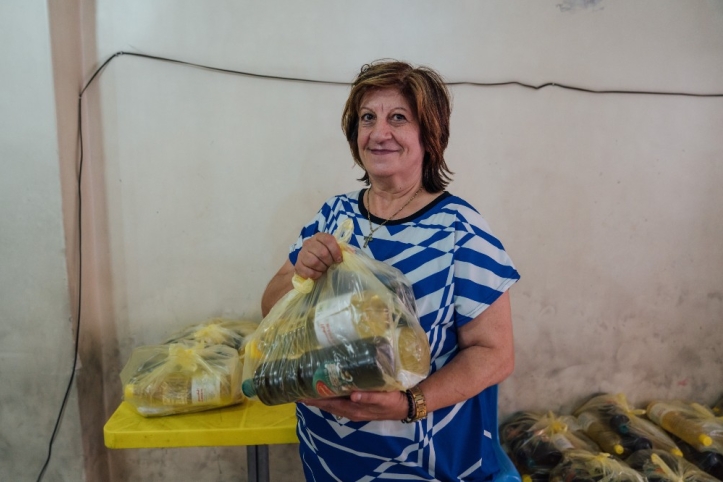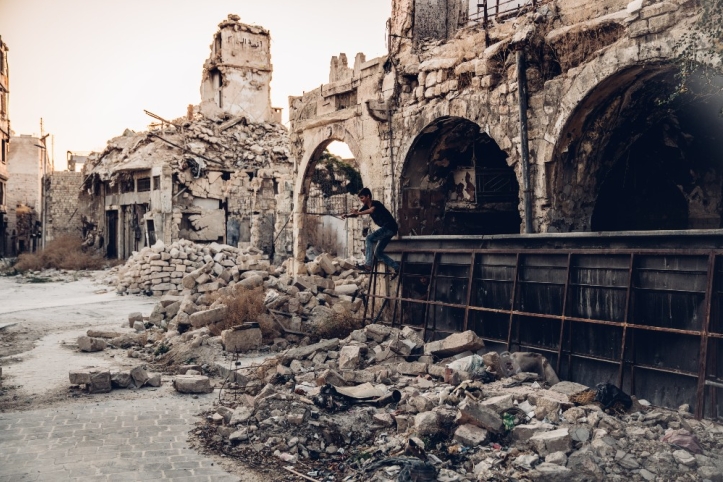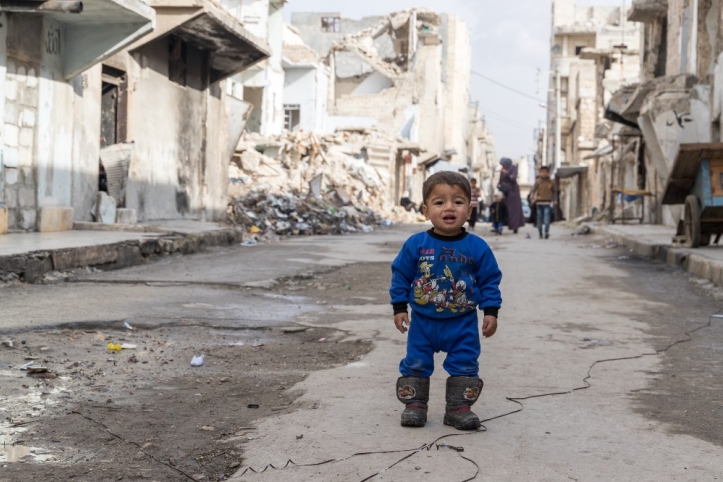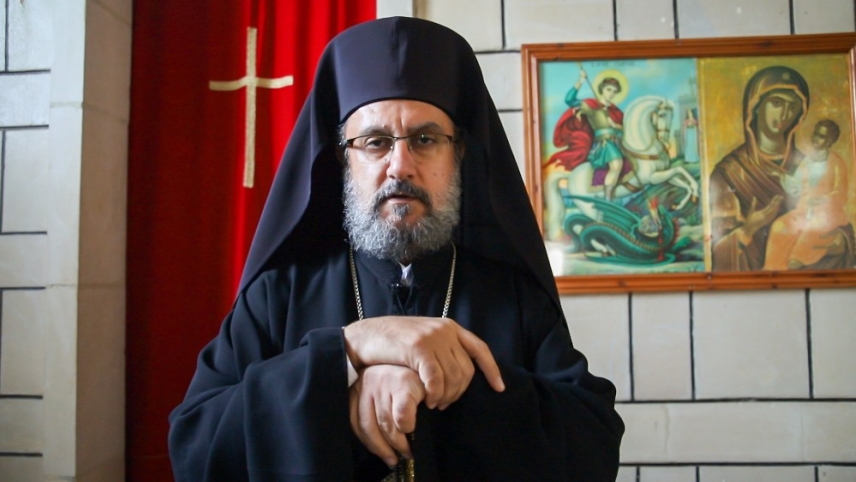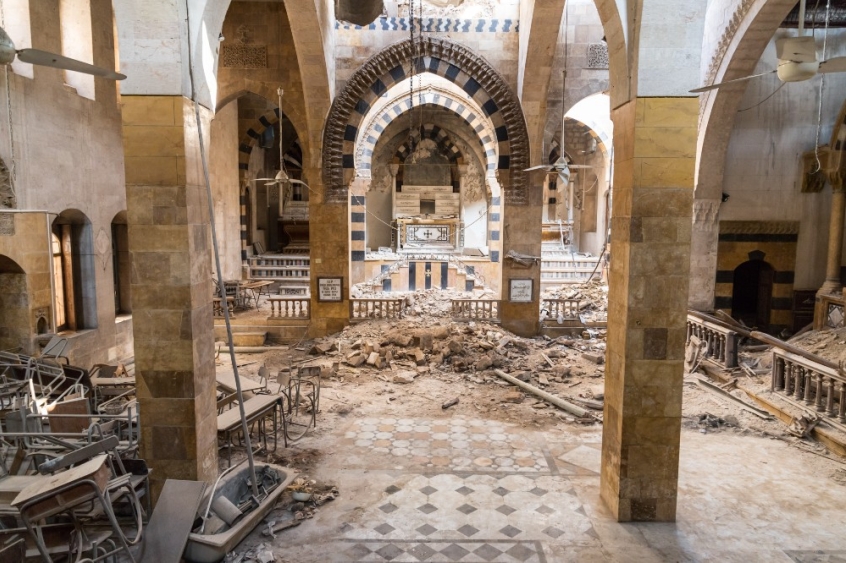
"Don't bother, it's only a few days and we will go back to our homes," Bishop Demetrios Sharbak, head of the Greek Orthodox Church in Safita, remembers telling his congregation 10 years ago. Soon, he found himself busy day and night helping the displaced Syrians who flooded Safita and the villages around it.
The village of Safita, located in Tartus Governorate, became a safe haven for displaced people from cities like Homs and Aleppo.
"We didn't have a relief work programme, nor organisations to help us," Bishop Demetrios told Christian anti-persecution charity Open Doors.
"With very limited means we bought mattresses for the refugees, a small cooking kit, canned food, pillows and covers, since people had left their houses with nothing but the clothes they were wearing."
Unprepared for war, the Church in Syria nevertheless responded courageously. Church leaders have become central pillars in communities, providing not only practical support like aid and shelter, but also encouragement and spiritual strength. In some cases it has been the Church negotiating hostage exchanges with rebels.
Across the entire country the Church suffered massively: many church buildings were shelled and destroyed, and congregations started to dwindle significantly as Christians started to flee. The Christian population has decreased from 2 million in 2010 to under 700,000 today according to the Open Doors' best estimates.
The population of Safita was predominantly Christian at the start of the century, with about 95% belonging to one of the churches. Now, according to Open Doors' partners there, only half of its population are Christians. The other half are mostly Alawites, a Shia Islamic sect.
"What made our country truly bleed is emigration - we mostly lost the young generation," Bishop Demetrios said.
"They are the ones who can rebuild the country, rebuild the church. Only the elderly are left here. The war is cruel. It resulted in displacement for many people, and in destruction. The war also deprives people of their emotions."
Ten years into the war, the Church in Syria still meets many challenges every day and continues its difficult mission of being an indispensable source of practical support for many Christians.
"The war in Syria is not yet over," Bishop Demetrios said. "At first there was the war with weapons and bombs, in which blood was shed and we lost precious souls. Now it has changed its face and turned into an unprecedented economic crisis that is sucking the life out of our people, due to the inflation of our currency.
"Syrians are now suffering from hunger more than ever; the numbers of needy people have doubled, if not tripled. Everything is expensive, beyond what a breadwinner usually earns. The war today doesn't spare anyone; hunger, pain, sickness, the pandemic, wildfires; they've all made life unbearable for people."
With the help of Open Doors, Bishop Demetrios' church started regular food aid distribution to 250 families every month, medical aid distribution to more than 200 individuals, as well as children's programmes and sports activities.
Lacking 'bread for breakfast'
Even if church buildings can be ultimately rebuilt, the dwindled and scarce congregations may never regain their numbers. Losing the young generation, especially the men, is a tale one hears all over Syria.
Bishop Elias Tohme, head of the Roman Orthodox Archdiocese in Valley near Homs, had to literally fight for the lives of his people and even participate in hostage exchanges.
Eyes filled with pain but with a steady voice he says, "I had to play a role in hostage exchanges. I had to sit with the rebels and negotiate with them to liberate some Christian men who were kidnapped. Christians were suffering as all Syrian people were."
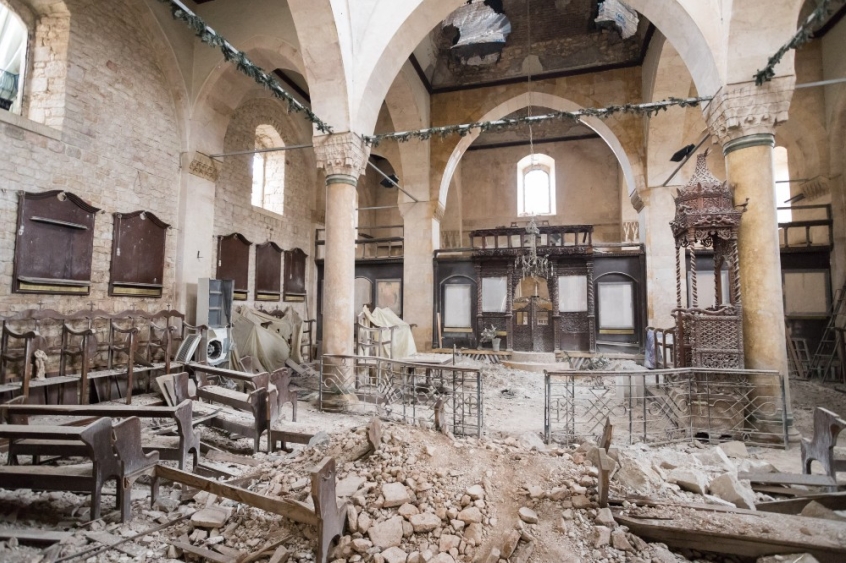
Since the war erupted suddenly, Bishop Elias' church was unprepared. They had limited capacity to support people. Ten years later, his concern is still the same – how to feed and give shelter to people who are hit by poverty, this time because of the economic crisis created by the war.
Over 85% of the Syrians are now living in poverty. Recently the country experienced a rise in the prices of essentials including basic food, detergents, clothes and fuel to keep people warm in the winter.
"Christians used to live a comfortable life before the war. Now everything has changed. With a salary equivalent to $20 a month for a family of four people, they don't have enough to buy bread for breakfast," the Bishop told Open Doors.
The harsh reality gives little hope to Bishop Elias and other church leaders in Syria. If congregations continue to dwindle, the Christian presence may be erased from certain areas altogether.
"I am afraid about the future of Syrians without Christians," Bishop Elias said. "There is a big danger if we all leave this land. I think we are all working together for this not to happen."
